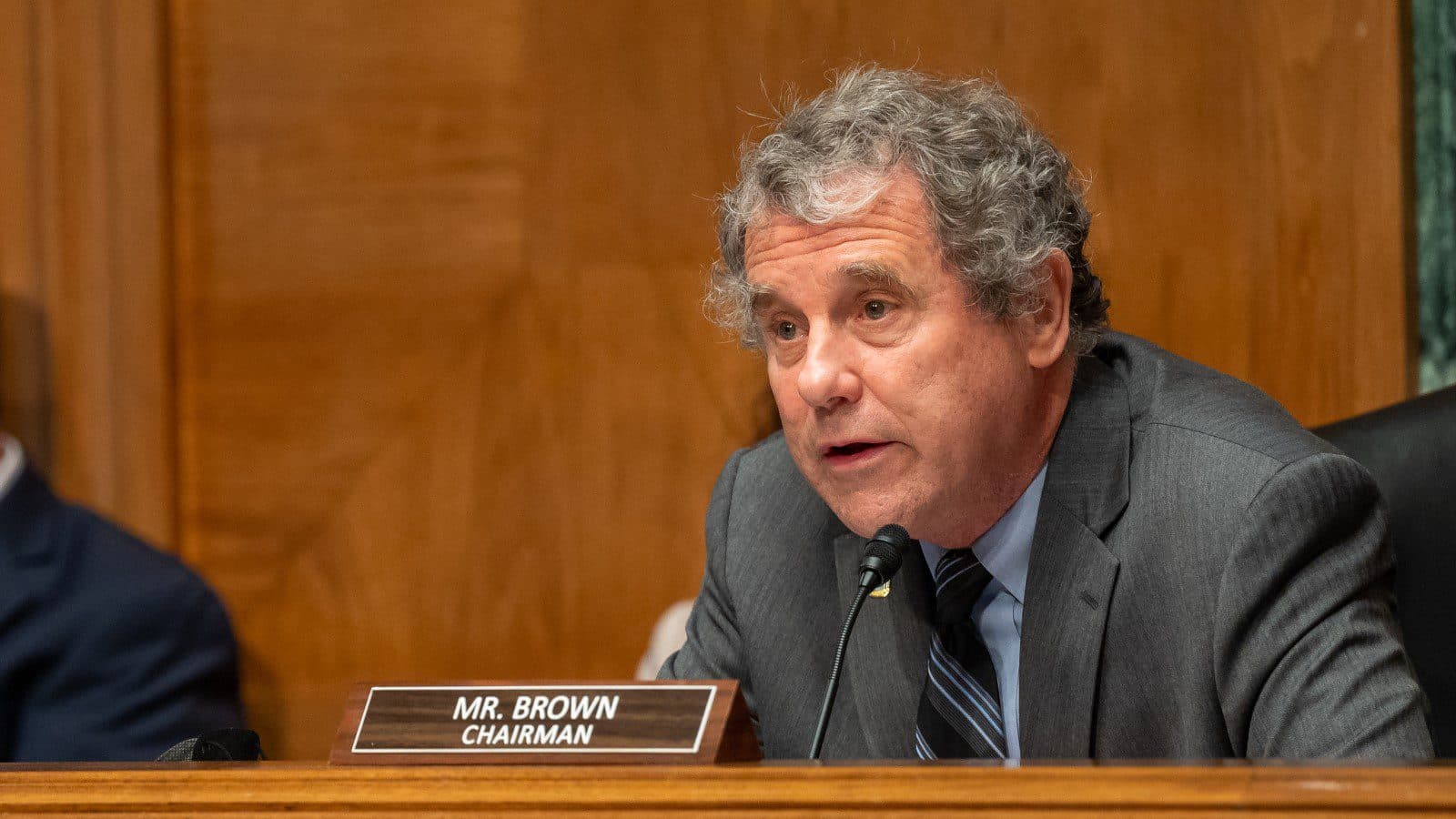Google, Apple Asked to Review Protections Against Crypto App Fraud
Tech giants Google and Apple are part of a larger probe by Sen. Sherrod Brown peering into crypto-related risks and scams

Sen. Sherrod Brown (D-OH). Chairman of the Senate Committee on Banking, Housing, and Urban Affairs. Credit: Brown’s office.
- Google and Apple are being pressed on how they police crypto-related fraud in mobile applications hosted on their app stores
- Letters issued to the tech giants’ CEOs are part of Sen. Brown’s wider probe into crypto scams
The heads of Google and Apple are staring down requests for information from the US government about how the tech giants implement safeguards and monitor for crypto fraud in mobile applications hosted on their app stores.
Chairman of the Senate Committee on Banking, Housing and Urban Affairs, Sen. Sherrod Brown (D-OH), sent two near-identical letters Thursday to Google’s Sundar Pichai and Apple’s Tim Cook.
Brown, the committee’s chair since February, is requesting the companies describe their review processes for apps that make it onto their stores, as well as how they go about policing certain apps that circumvent their store policies.
The requests come as the senator ratchets up efforts to understand the scope of crypto-related scams. Also on Thursday, Brown chaired a hearing on “Protecting Investors and Savers: Understanding Scams and Risks in Crypto and Securities Markets.”
In it, the committee heard about how bad actors use marketing as a means to promote scams including through the use of apps hosted on Google’s and Apple’s stores.
Melanie Senter Lubin, president of the North American Securities Administrators Association and Gerri Walsh, senior vice president of investor education at the Financial Industry Regulatory Authority, both offered their insights during the hearing.
In his letters, the senator has sought information on the systems and processes the companies have in place for people to report fraudulent, apps as well as actions taken to alert users to fraudulent crypto app activity.
“While firms that offer crypto investment and other related services should take the necessary steps to prevent fraudulent activity, including warning investors about the uptick in scams, it is likewise imperative that app stores have the proper safeguards in place to prevent against fraudulent mobile application activity,” the senator wrote.
Apple and Google are being urged to respond to the senator’s request for information by no later than August 10, 2022.
Get the news in your inbox. Explore Blockworks newsletters:
- The Breakdown: Decoding crypto and the markets. Daily.
- 0xResearch: Alpha in your inbox. Think like an analyst.






